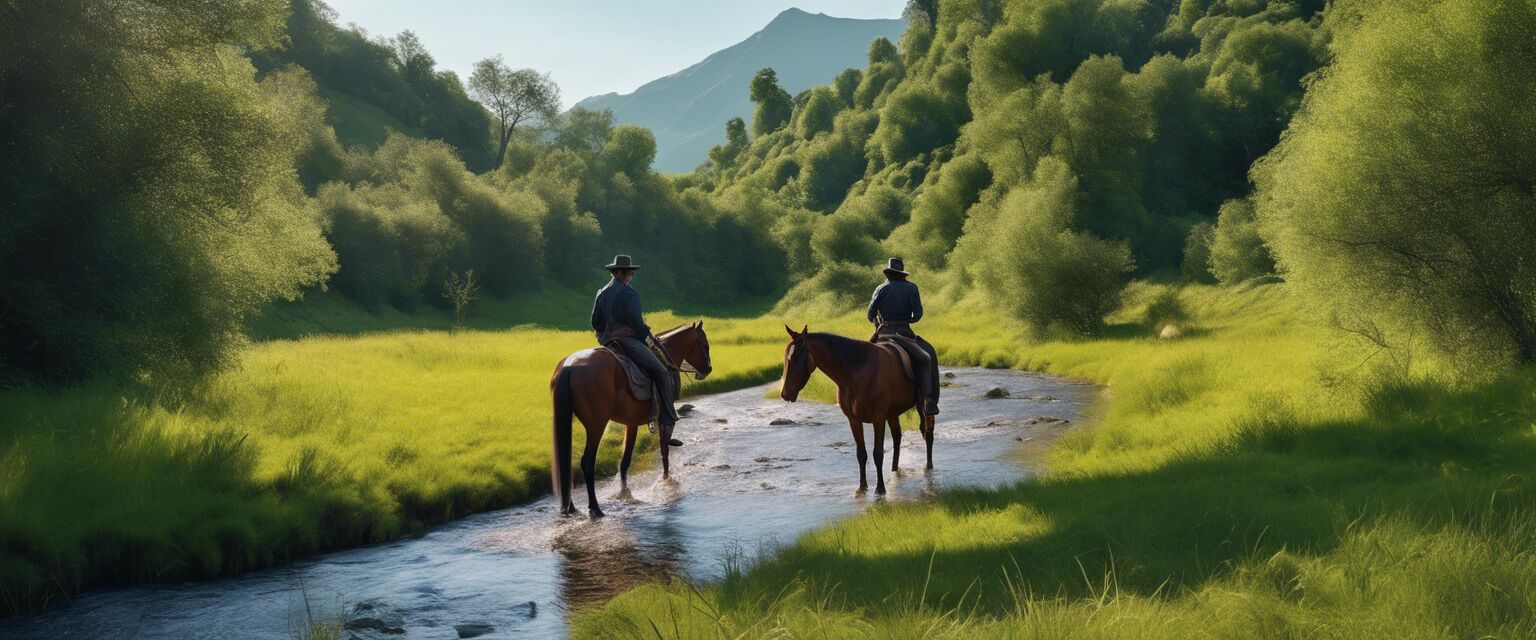
Nutrition and hydration for trail horses
Key Takeaways
- Proper nutrition is essential for maintaining a horse's stamina during trail rides.
- Hydration plays a critical role in preventing fatigue and overheating.
- Supplements can enhance a horse's performance and recovery.
- Monitor a horse's condition regularly to adjust feeding and hydration practices.
Trail riding is an exhilarating experience for both horse and rider. However, to ensure that your horse performs at its best, attention must be paid to its nutrition and hydration. This article covers essential aspects of feeding your trail horse, hydration practices, and the role of supplements in enhancing performance.
Understanding equine nutrition
Nutrition for horses is not just about filling their belly; itâs about ensuring they receive a balanced diet that supports their energy needs during strenuous activities like trail riding. Horses are herbivores, and their digestive systems are designed to process fibrous materials.
Essential nutrients for trail horses
Here are the primary nutrients that should be included in a trail horse's diet:
| Nutrient | Function | Sources |
|---|---|---|
| Carbohydrates | Primary energy source | Grains, hay |
| Proteins | Muscle repair and growth | Legumes, soybean meal |
| Fats | Energy and coat health | Vegetable oils, flaxseed |
| Vitamins | Overall health and performance | Fruits, vegetables, supplements |
| Minerals | Bone health and metabolic functions | Salt blocks, mineral supplements |
Feeding practices for trail horses
When it comes to feeding trail horses, timing and quantity are key. Consider the following practices:
- Provide access to high-quality hay at all times.
- Introduce grains gradually to avoid digestive issues.
- Feed smaller, more frequent meals to maintain energy levels.
- Consider using a slow feeder to encourage natural grazing behavior.
The importance of hydration
Hydration is critical for horses, especially during long trail rides. Dehydration can lead to serious health issues, including colic and decreased performance. Hereâs how to ensure your horse stays hydrated:
Signs of dehydration
Keep an eye out for these signs to determine if your horse is dehydrated:
- Dry gums and nostrils
- Sunken eyes
- Loss of skin elasticity
Hydration strategies
Here are effective methods to keep your trail horse hydrated:
| Strategy | Description |
|---|---|
| Frequent water breaks | Offer water every hour during rides. |
| Electrolyte supplements | Provide electrolytes before and after rides to replenish lost minerals. |
| Wet feeds | Mix water with grains or pellets to increase water intake. |

Supplements to consider
Supplements can help ensure your horse gets the necessary nutrients, especially during intense trail rides. Here are some popular supplement options:
- Electrolytes: Helps replenish minerals lost through sweat.
- Joint supplements: Supports joint health and mobility.
- Probiotics: Maintains gut health and digestion.
- Vitamins: Ensures adequate vitamin intake for overall health.
Monitoring your horseâs condition
Regularly monitoring your horse's health and performance can help you adjust feeding and hydration practices as needed. Consider the following:
- Check weight and body condition regularly.
- Observe behavior and energy levels during rides.
- Keep a record of feeding and hydration practices to identify patterns.
Pros
- Proper nutrition enhances performance and stamina.
- Hydration prevents fatigue and overheating.
- Supplements can aid recovery and overall health.
Cons
- Improper feeding can lead to digestive issues.
- Over-supplementing can be harmful.
- Monitoring requires time and commitment.
Conclusion
Taking care of your horse's nutrition and hydration is vital for a successful and enjoyable trail riding experience. By following the practices outlined in this article, you can ensure your equine partner remains healthy, energized, and ready to tackle any trail.
Additional resources
For more information on trail riding gear, check out our other articles on:










